Student Blog
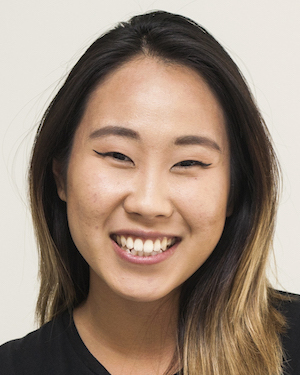
Ghana Part 1 — Cultural Exposure ⟩
March 26, 2019, by Joyce
Diversity Externships International
Hello everybody! It feels weird blogging again because of the long hiatus but boy do I have things to share with you! As you probably have read about already, the second years were away on externships + spring break these past few weeks. While Jessica and Serena went to Australia, Melissa stayed local, I decided to go to Ghana.
I’m splitting this topic of externship into various posts because there are just so much that I want to highlight about this experience and I want to make sure to create the time and space that they deserve. To talk about my experience, I need to go a few years back to the beginning of it all . . .
Alumni and therapist, Bonnie Nakasuji has been coming to Ghana for two decades. In partnership with the Mephibosheth Training Center (MTC), a school and vocational training center for children with disabilities, Bonnie has garnered a close relationship to bring USC OT students. It was once a level 1 fieldwork opportunity now a leadership externship location.
So what was our purpose there? Firstly, Cultural Exposure.
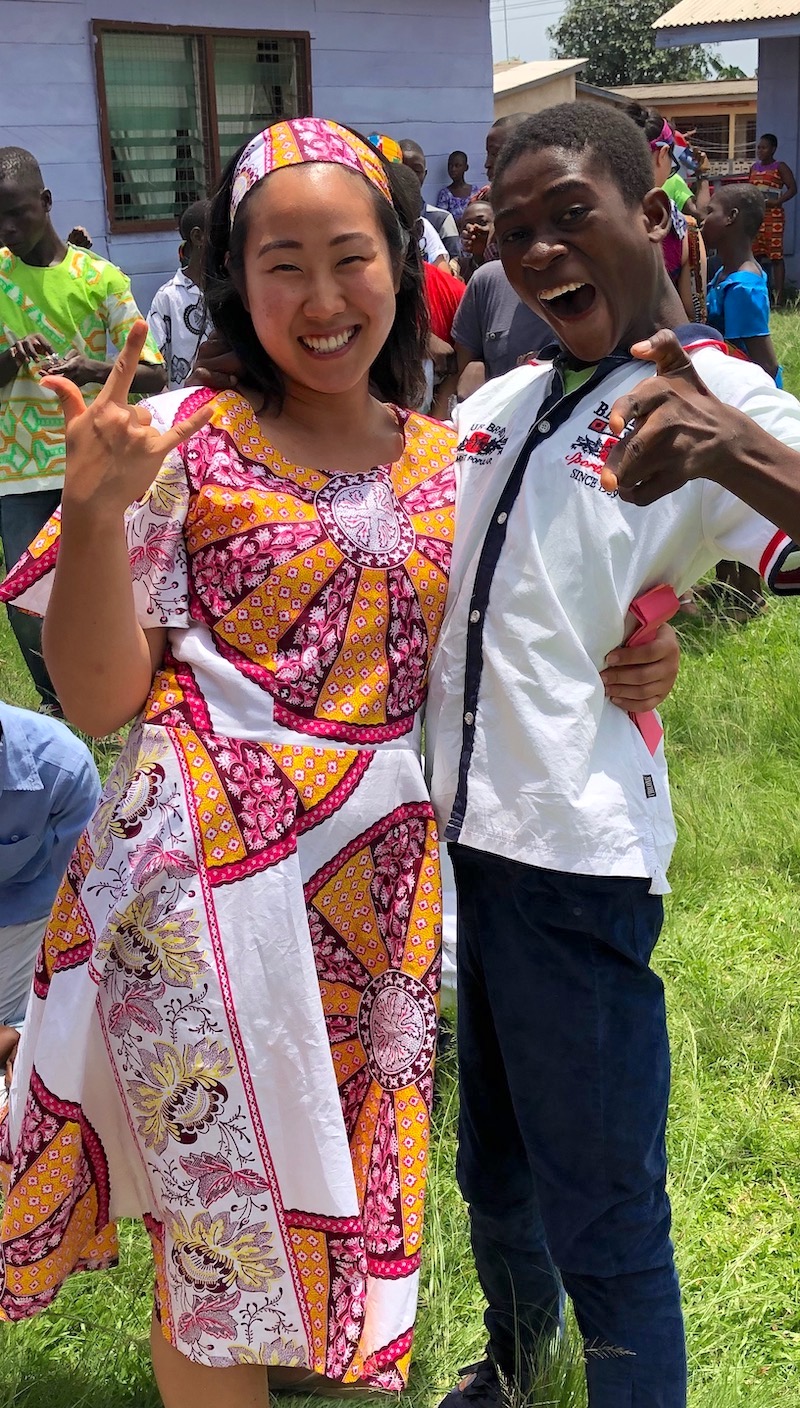
Bonnie as well as the other co-leading therapists, Jenna Kobara and Mariko Yamazaki, have taught us about the importance of sustainability and empowerment. We all have this righting reflex embedded within us, especially as future healthcare professionals, to fix things, whether that’s through offering advice or materials. Instead, the therapists encouraged us to be comfortable in the stillness of the uncomfortable. As Americans, regardless of whether we were Asian or Hispanic, etc. as Americans, we are all called “obrunis”, to which the term has evolved from meaning white person to a privileged, educated, rich person. It is our responsibility to acknowledge that privilege and the cultural differences when stepping into into another culture.
I strongly believe that short term trips like this are not served to drastically change a community, let alone a country’s way of life. Moreover, we as visitors are actually disruptive to this school’s daily routine. For two weeks, they had to accommodate the meals and living arrangement of a team of 40 Americans. I believe that this experience was meant for students to experience and become exposed to the different occupations in a different culture.
Bonnie gave a great example which made me reflect and think about how the things we do as Americans can make waves of effects that are often unseen. She told us how sometimes she feels uncomfortable bringing shoe donations to MTC. While it’s great that the students receive often new shoes to wear for free, we are disrupting the economic flow. Now these students and their families are not spending money at their local shoemakers and these shoemakers will feel the effects, challenging their ability to make money. In addition, how long can one pair of shoes sustain a child? It’s more powerful to work with individuals with what they have and where they are at, something that I have learned must be applied when working in a client-centered profession, meet your clients where they are at, not where you want them to be at!
When observing both the occupational therapists and physical therapists community consultations, I realized that they were very intentional in using assessments that could be understood regardless of culture and language barriers. They also provide education to the child, parent, caregiver, brother, sister, aunt, etc. so that this training and education can sustain the therapy even when they weren’t there.
In addition, I love how we as tourists were able to contribute to the economy. First, a sister of the principal of MTC, a seamstress came by MTC with her measuring tape and differently patterned fabrics. All students and therapists bought fabric and service in creating us individualized pieces. I was so excited for this part . . . to have a dress that will fit me all in the right places is something I have never experienced before!

Secondly, at the end of our externship, we went shopping at the local crafts village. I bought some cute earrings and leather sandals. It was also fun to participate in their cultural norm of bargaining to which Bonnie added, “It would be rude to not bargain!” I had so much fun conversing with store owners, asking them where they got/made the items, learning their language, and bargaining for a lower price. What an experience!!
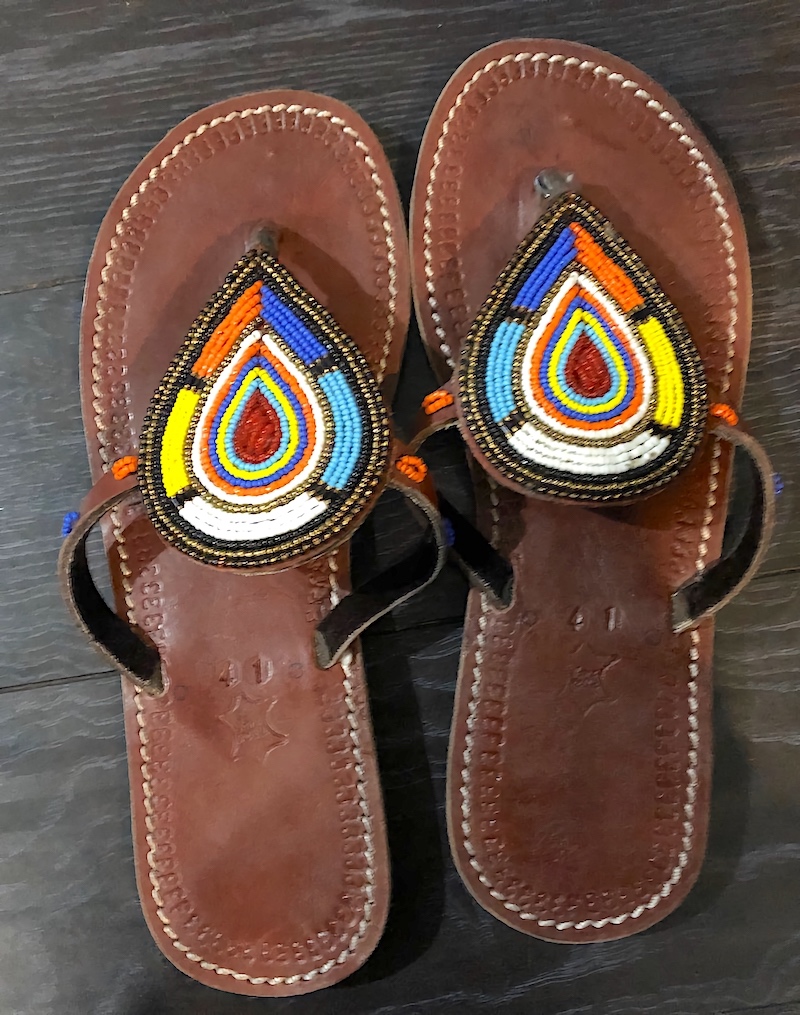
⋯
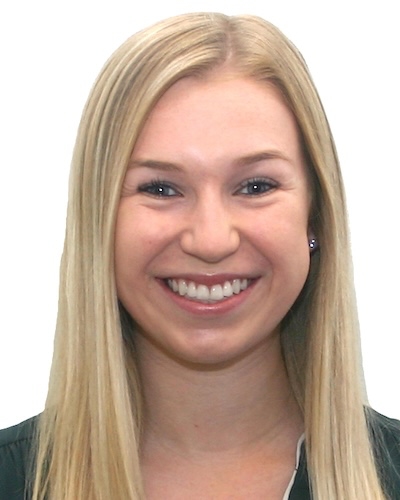
Good Day Mate: Australian Externship ⟩
March 21, 2019, by Jessica P.
If our division hallways have been a little quieter than normal, it’s because us second-years have been away for the past two weeks on our externships. As part of our course OT 540: Leadership Capstone, all students complete an externship. This is a student-driven, create your own experience designed for us to continue developing our leadership and professionalism.
We are able to create an externship that fits our personal interests and career goals, whether that is shadowing an administrator at AOTA to learn more about advocacy, learning more about private practice, volunteering, or traveling to explore occupational therapy in a global context. I had the opportunity to do my externship through our Global Initiatives, run by Dr. Danny Park, to Griffith University in Gold Coast, Australia.
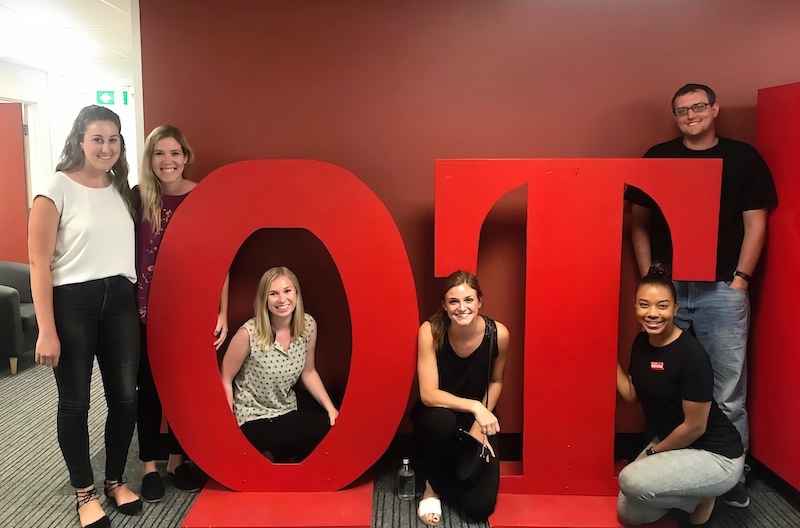
Griffith University’s Occupational Therapy Department
While at Griffith, five other students and I had the opportunity to sit in on classes and go to clinical site visits. It was such an incredible experience to be able to compare global perspectives on occupational therapy. While there were differences between OT in Australia and the United States, it was more similar than different. Griffith’s courses also utilize team-based learning like we do here at USC. This means that much of their class time is spent doing case-study applications and using standardized patients.
Through our clinical site visits, I got to experience the continuum of care in Australia, specifically in the context of universal healthcare. It was amazing to see many of their brand-new hospitals and shadow occupational therapists there.
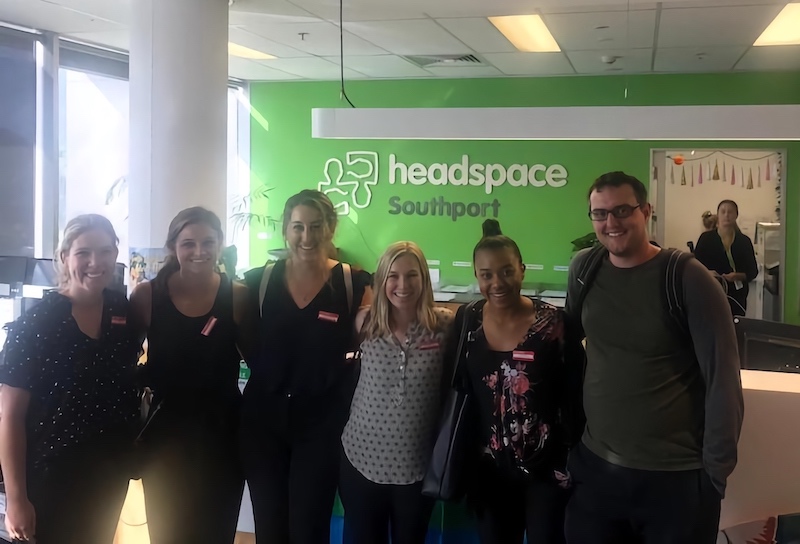
Visiting Headspace, an outpatient youth & adolescent mental health site
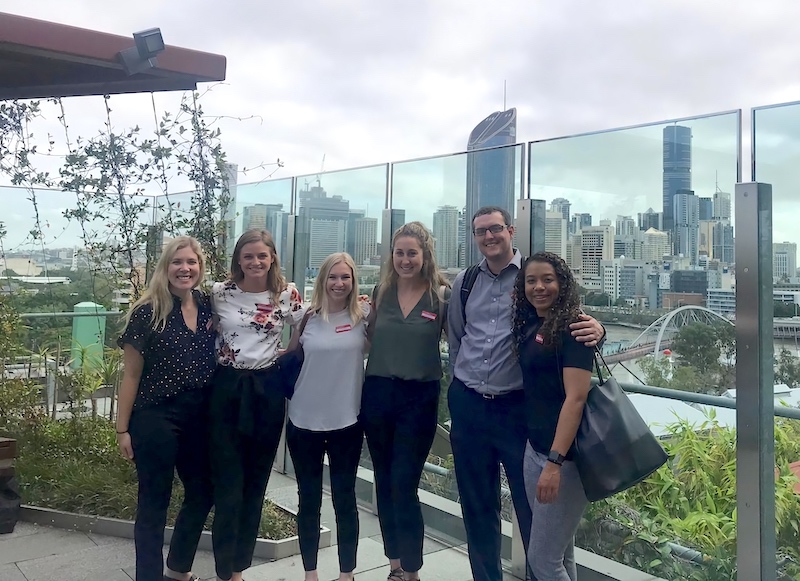
Visiting Queensland Children’s Hospital’s therapy rooftop
My externship team and I also gave a presentation on USC’s academic programs, comparing American and Australian OT, and advice for fieldwork placements.
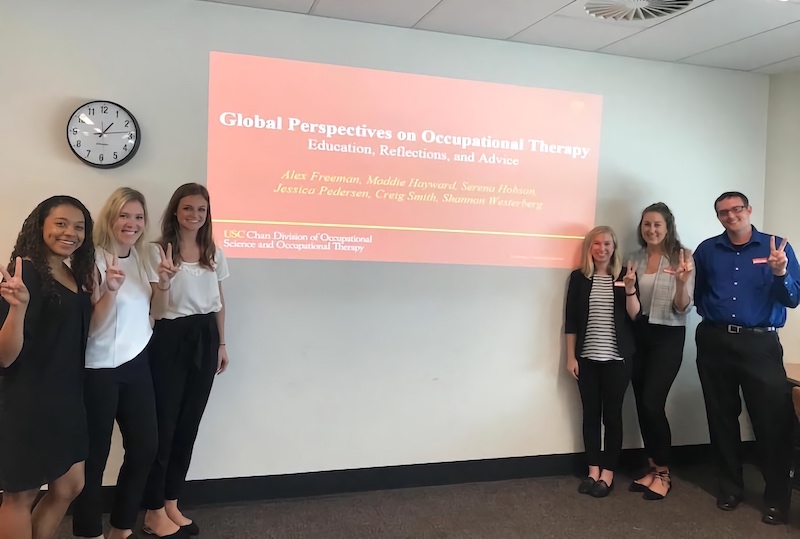
Our two-week externship was also conveniently right next to spring break so four of my classmates and I traveled throughout Australia. We were able to explore Sydney and Melbourne, taking advantage of everything Australia has to offer . . . especially the Tim Tams!
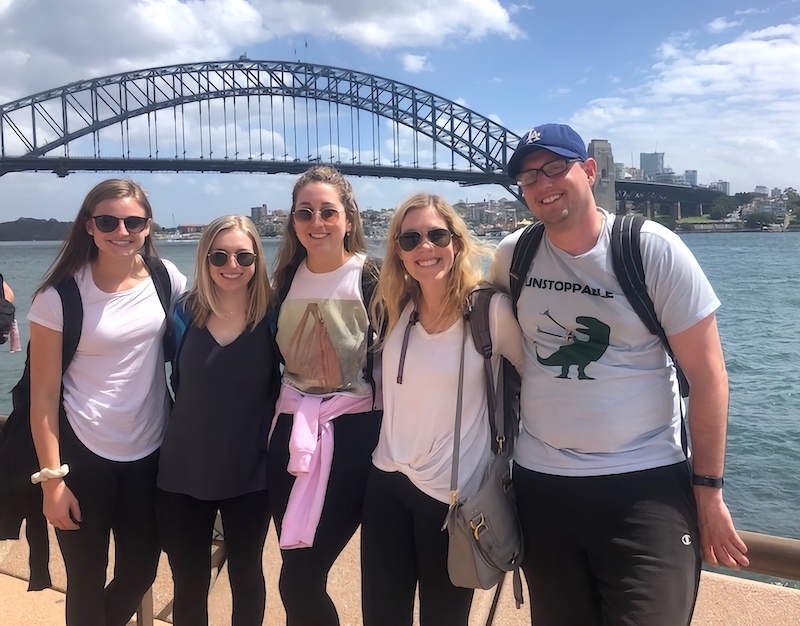
Sydney Harbor Bridge

Meeting one of my favorite animals at Currumbin Wildlife Sanctuary
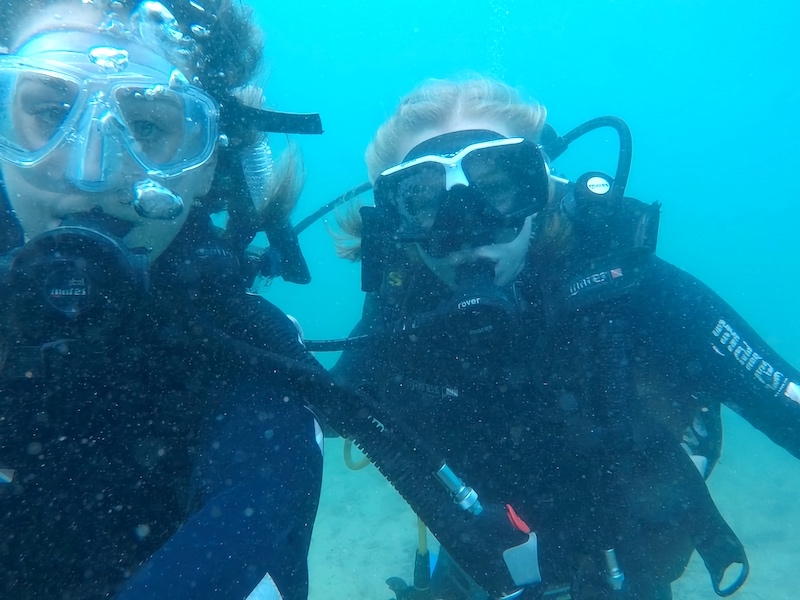
Scuba diving in Gold Coast
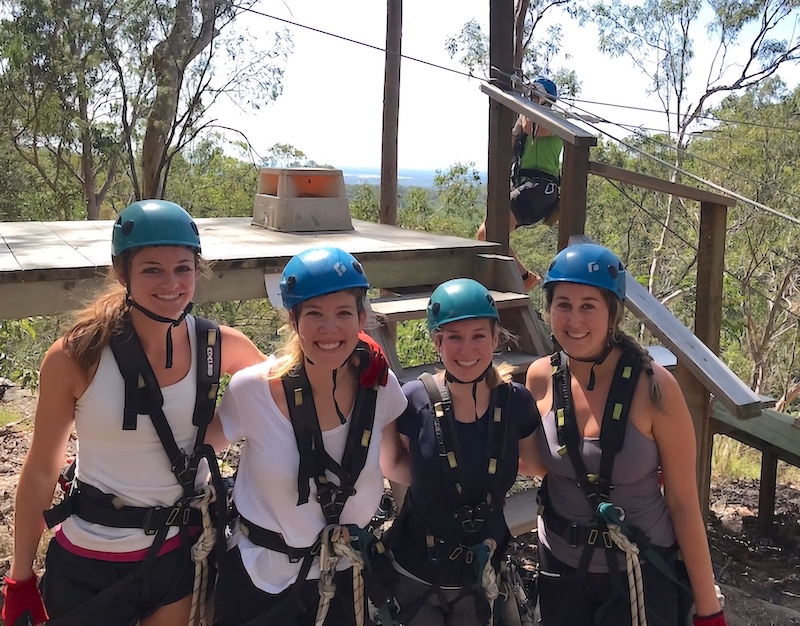
Ziplining in Mount Tamborine
I feel so grateful to be a part of a program that not only allows us this opportunity but pushes us out of our comfort zones to grow professionally and personally. My time in Australia will forever be one of the most memorable parts of my OT education. I know no matter where I am in the world, I am entering one of the most rewarding and amazing professions with the best people.
⋯
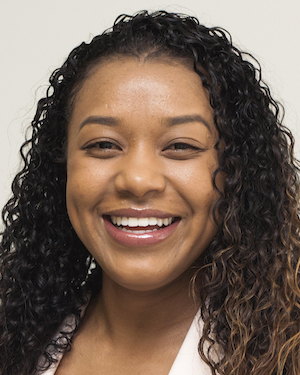
Health and Wellness in Australia ⟩
March 19, 2019, by Serena
Where did I go for externship?
Australia!
So I traveled internationally for my first time! I participated in the Global Initiatives student exchange program in Australia at Griffith University for the Leadership Capstone course. I was able to develop a stronger ability to connect with people from other parts of the world, enhance my leadership qualities, and heighten my awareness of the Australian occupational therapy and occupational science cultural differences and similarities. My time was spent observing and shadowing occupational therapists specifically in the Gold Coast in settings such as acute care, emergency, community, persistent pain services, children’s hospital, geriatric, and emerging areas focusing on health and wellness.
How did I decide where to go for the externship?
The externship is so incredible because you are able to travel anywhere in the world to strengthen your understanding of OT leadership. Some of my friends like Joyce went to Ghana and others stayed within the Los Angeles area like Evan, Melissa and Goeun. The reason why I decided to go to Australia is due to my passion for health and wellness.
I have been following an occupational therapist, Mrs. Jacqueline Edser, who I admire via the Internet for over a year now. I decided to apply for the Global Initiatives externship in Australia when I noticed that Mrs. Edser was less than an hours drive from the partnered University. I immediately reached out to her and she was happy to meet! She is an Occupational Therapy member of the Australian Lifestyle Medicine (LM) Association and is currently utilizing her OT skills while delivering LM interventions to employees of the bus and train systems in Australia. She is an occupational therapy leader within the Australian country by focusing on an area of need that is at times overlooked and not staffed with an OT to address preventative healthcare needs. After learning from her, I aspire to take the leadership skills she has given me to deliver occupational therapy informed lifestyle interventions to the population in my surrounding American community.
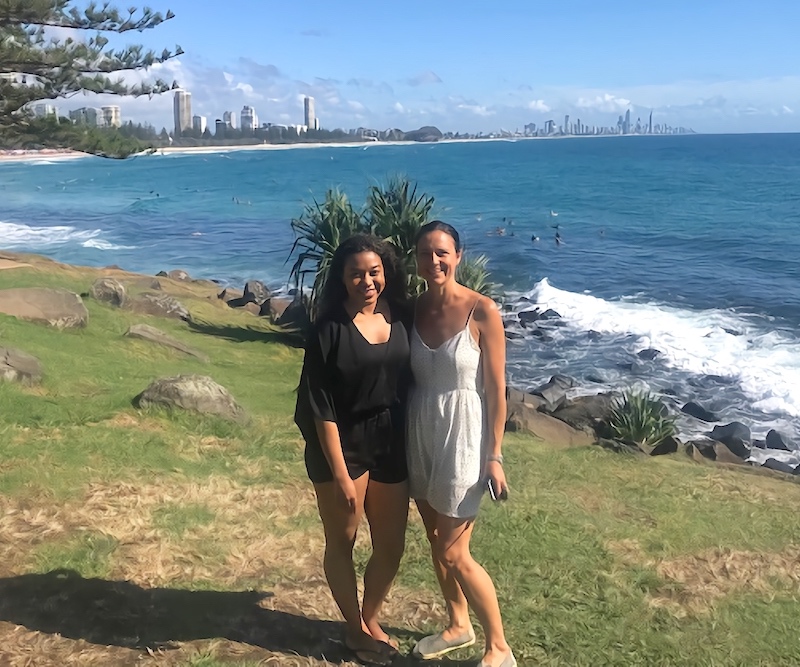
Meeting with Mrs. Jacqueline Edser, an occupational therapist at Burleigh Beach in Australia for the Leadership Capstone externship.
⋯

So . . . What Is OT? ⟩
February 21, 2019, by Jessica P.
So you like help people find jobs? Is it basically the same thing as physical therapy? These are just two of the questions you may be hearing a lot when you tell people that you are studying occupational therapy. As relatively youthful profession, I mean we are only 102 years old, occupational therapy is not always well known and represented in society or healthcare professions. Many people make assumptions about what we as OTs do and as an OT student I love that I get a chance to teach others about this amazing profession and the role that it can play in so many people’s lives.
Over the years, I have gotten pretty good at my “OT elevator pitch.” This is just a quick way to describe occupational therapy to someone who may have never even heard of the profession before. In one of our courses, OT 523: Communication Skills for Effective Practice, we even had the opportunity to develop our elevator pitches and get feedback from classmates. Being able to confidently share about my profession allows me to explain the unique occupational therapy lens, advocate for my future patients on why they may need OT, and educate others on a profession they may be interested in pursuing.
So . . . what is OT?
Occupational therapy is a holistic, healthcare profession which helps people of all ages and abilities do the things they need to do and want to do in their day to day lives. An occupation is not just your job, it is anything you do that occupies your time.
Across the lifespan, our occupations will obviously look different. When I was 2 months old, my main occupations were sleeping and eating. Now at 22, my occupations look very different — attending class, hanging out with friends, and working. As I get older, my occupations will again shift and look different. Occupational therapists come in when there is something that prevents you from living your life to the fullest, the way you want to. This could be from anything, such as a mental illness or physical disability.
So . . . where do OTs work?
The short answer to this is OTs work pretty much everywhere. Occupational therapists can be found working in hospitals, private clinics, schools, home health, corporations, community centers, psychiatric hospitals, skilled nursing facilities, university medical and research centers . . . and more!
After years of explaining to people that I want to be an occupational therapist, I’ve found it’s best to make it relatable to them. Ask someone “What is your favorite thing to do?” and “How would you feel if you could no longer do this?” Voila! That is where occupational therapy will come in.
⋯
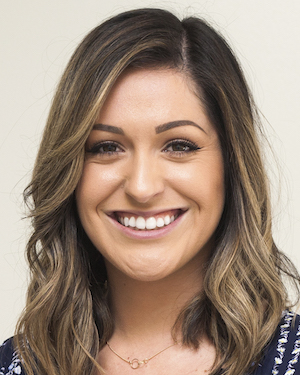
Senioritis . . . Senioritis Everywhere ⟩
February 20, 2019, by Melissa
Hey everyone! This is our last semester in the program, and things definitely haven’t slowed down. As a result, I’ve realized that a common theme amongst our class is exhaustion and senioritis. After I graduated from undergrad, I thought that senioritis was a thing of the past, but boy oh boy was I mistaken. Don’t get me wrong, I’m still enjoying my time in the program tremendously, and taking electives this semester keeps things interesting, but I am also feeling the burnout. Thus, I wanted to share some of the things that help to keep me going!
Clinical opportunities and seeing OT in action
Although there is no Level 1 fieldwork associated with our Spring Semester, we still have the opportunity to shadow OTs in specific settings depending on the electives we choose to take. I talk more in depth about these opportunities in my previous blog post, so check it out if you’d like to learn more. Getting the information we need during class is always great, as our professors are incredibly knowledgeable and they are experts in their given area of study, but there’s something invigorating about being able to see it play out in a clinical setting. For example, we learn all about the difficulties associated with treating medically fragile patients up the hill at Keck Hospital, but having the opportunity to see what that looks like is hugely beneficial to my learning. It also helps to remind me why I chose to be in this profession, as the OTs we shadow are GREAT at what they do, and the patients truly appreciate them.
Meeting with my Mentor
USC does a great job of providing us with opportunities for mentorship, and we are often encouraged to seek out faculty or staff that we think would offer mentorship in an area we are interested in. I myself have sought mentorship from several faculty and staff members, and I can happily say that we are still in contact today. However, apart from being encouraged to approach mentorship on our own, our program actually assigns us a mentor depending the area of study we’d like to pursue! I personally love the mentor I was assigned, and I am truly grateful that clinicians, faculty, and staff all take the time to mentor us. Things aren’t always going to be rainbows and sunshine, and having someone that I can go to when things get rough is truly comforting.
In addition, I have been lucky enough to work alongside 2nd year and OTD students throughout my time in the program, and they have provided great mentorship as well. As students who are ahead of you in the program, they can offer some great information on what to expect, and even some tips based on their own experiences! I’ve found it really beneficial to have a student perspective as well. Ultimately, seeking mentorship from leadership within the program or students that are ahead of you will help to ease your anxiety, and it can help with your own career planning!
Assisting with interviews for the incoming Ambassadors
This has been a particularly fun experience, as it reminds me that not too long ago I was also going through this process and hoping to be a part of the Ambassador team! It was so refreshing to see the passion, commitment, and talent in our program, and we had some very strong candidates. This position is something I knew I wanted to pursue even before I started in the program, therefore interviewing the incoming ambassadors reminded me of the excitement and NERVES that surround the application process. Now that my time as an ambassador is nearing its end, the interview process has prompted me to reflect on everything we’ve done, and all that we’ve accomplished these past months. It’s easy to get wrapped up in the chaos of everyday life, therefore taking a step back to appreciate these last two years has helped me get the energy to push through the last couple of months in the program.
Admitted Student Reception
For those that don’t know, there is an Admitted Student Reception that we host in the spring to welcome all of our admitted students. It’s such an exciting, emotional, and invigorating experience, and serves as a great opportunity to meet your future classmates and professors! I personally had such a great time, and getting to experience it again last year and this year reminds me of the excitement surrounding our admission into the program! Working the event and meeting the newly admitted class is so fun, and I find it hard to believe that my time as a Master’s student is almost over. It’s a surreal feeling, but it serves as a reminder to enjoy the time I have left!
Ordering our regalia for Graduation!
We were recently notified that we could begin to order our regalia and sashes for graduation! Although graduation is a little over 2 months away, it’s exciting to begin to plan for it. It definitely makes it feel more real, and it’s a reminder that we’re so close to the finish line. We also get to personalize our sash if we want to, which makes the process more fun! Because this semester has been so busy, it’s hard to remember that it’s not an ordinary semester, but our last one! Even that small reminder has been enough to excite me to push through the rest of the semester and finish strong.
Being tired and feeling burnt out is not a bad thing. It’s just a sign that you’ve been working really hard for a while! However, it is important to take some time to reflect and remember why you started. It’s crazy to think about how quickly my time in the program has gone by, and I’m excited to push through these upcoming months to walk the stage with my classmates!
⋯





